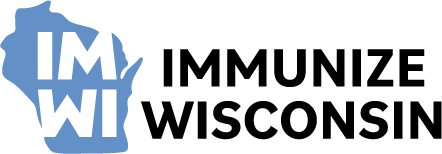
What is RSV?
Understand the risks of RSV and how it spreads, so you can help stop it.
Respiratory Syncytial Virus (RSV) is a common virus that causes mild, cold-like symptoms in most people—but for infants, older adults, and people with weakened immune systems, it can be much more serious. In fact, RSV is the leading cause of hospitalization in infants in the U.S..
Symptoms typically appear 4 to 6 days after exposure, and include:
Runny Nose
Cough
Sore Throat
Fever
Decreased Appetite
Wheezing or Labored Breathing
Most people are contagious for 3 to 8 days, but infants can spread RSV for up to 4 weeks, even after symptoms subside. It spreads easily through droplets from coughs or sneezes, or by touching contaminated surfaces.
Understanding RSV Prevention Tools:
Abrysvo & Nirsevimab
Two tools. One goal: protect the most vulnerable.
RSV prevention has evolved. Today, we have two powerful options to protect babies: maternal vaccination and a long-acting monoclonal antibody.
Abrysvo
for Pregnant People
Nirsevimab
for Infants
Preparing for Respiratory Virus Season
Watch On-Demand: Preparing for Respiratory Virus Season
Led by Dr. Margaret Hennessy, MD, FAAP, co-chair of the Immunize Wisconsin Advisory Council, this 56-minute webinar offers expert insights into preventing RSV, flu, and COVID-19 this season.
Topics Include:
- RSV prevention tools and updates
- Flu and COVID-19 vaccine guidance
- Tips for vaccine promotion in Wisconsin
Duration: 00:56:38 Password: +Pk*WEP0
Learn from experts how to lead your community through RSV season.

Resources for Clinicians
Tools you can use to educate, recommend, and protect.
These print-friendly materials support clinical conversations, patient education, and vaccine administration. Download and share them in your clinic, exam rooms, or discharge folders.
RSV Quick Facts for Clinicians
Overview of causes, symptoms, prevention tools, and key vaccine guidance.
![]() Use for training or clinician talking points.
Use for training or clinician talking points.
In-Clinic Poster for Patients
Simple explainer on how RSV spreads, how to prevent it, and who should get protected.
![]() Post in waiting rooms and exam rooms.
Post in waiting rooms and exam rooms.
Dosage Recommendations Quick Reference
Weight and age-based dosing guide for nirsevimab and guidance on maternal vaccination timing.
![]() Keep at immunization stations or include in EMR protocols.
Keep at immunization stations or include in EMR protocols.
Printable FAQ for Parents
Patient-friendly RSV overview including symptoms, prevention, and vaccine safety information.
![]() Send home with families after well-child visits.
Send home with families after well-child visits.
Online Resources For Clinicians
Explore trusted RSV guidance from national and state health leaders.
AAP RSV Care Resources
American Academy of Pediatrics guidance on RSV care and immunization.
WI DHS RSV Page
State-specific prevention, reporting, and patient information.
Maternal RSV Vaccine Fact Sheet (PDF)
Details on Abrysvo timing, administration, and efficacy.
Infant RSV Immunization Fact Sheet (PDF)
Information on nirsevimab use for infants and high-risk toddlers.
Seasonal Timing Reference Chart (PDF)
Breakdown of RSV protection seasonality and eligibility.
CDC Infant RSV Prevention at a Glance (PDF)
One-page overview of current recommendations.
CDC Guidance on Infant RSV Protection
Details on RSV prevention strategies and eligibility.
AAP Nirsevimab Administration Guide
Step-by-step decision guide for clinical use.
AAP Nirsevimab FAQ
Common clinician questions and answers on nirsevimab.
ACOG Guidance on Maternal RSV Vaccination
Clinical recommendations for Abrysvo use during pregnancy.
CDC RSV Vaccine MMWR (April 2024)
Official ACIP recommendation on RSV immunization.
Stay Connected
with Immunize Wisconsin
Sign up for our newsletter to stay up to date on new grant program information and to learn more about upcoming grant initiatives

